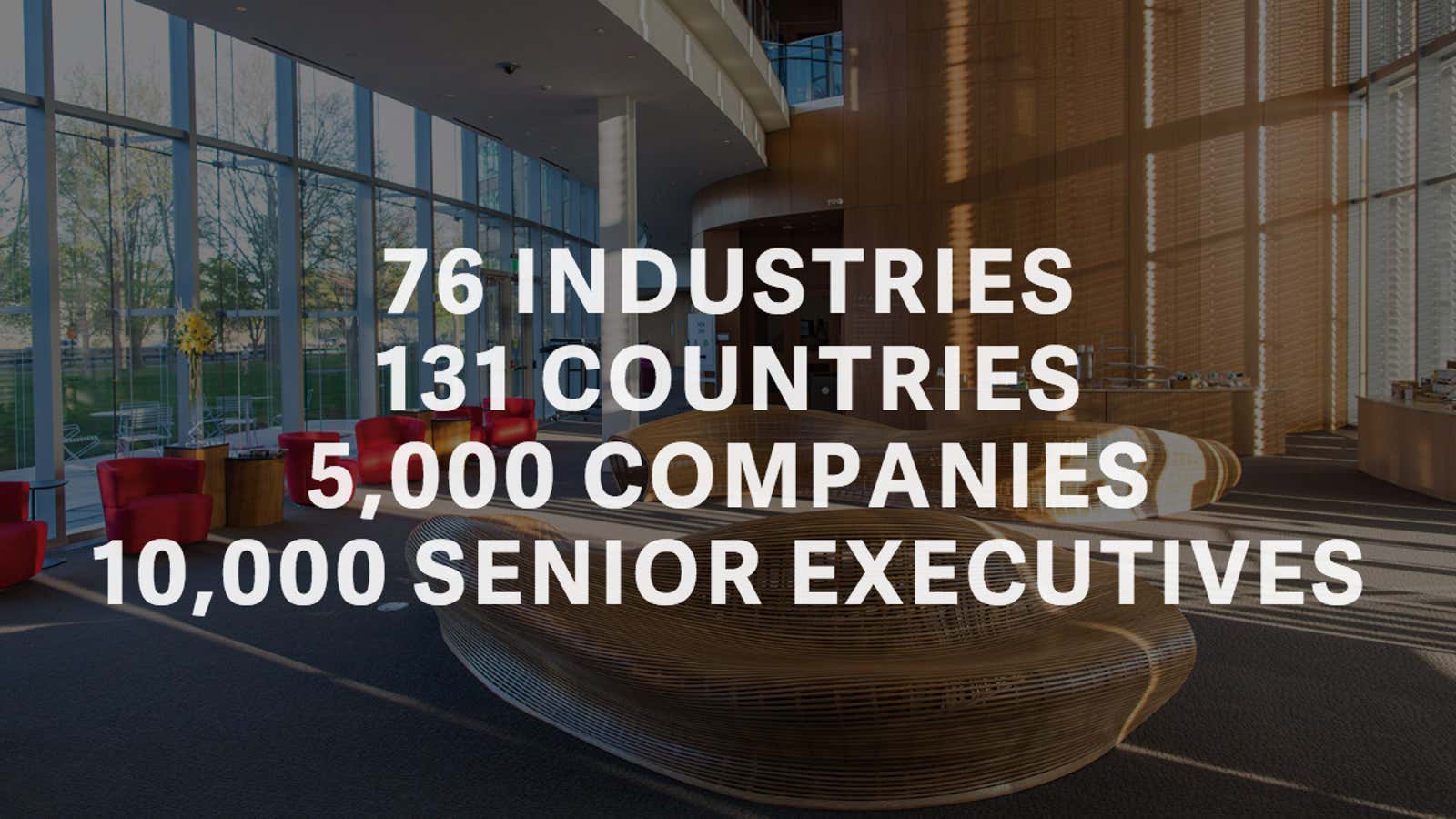The most important asset at your company isn’t something you can put your hands on. It isn’t equipment or the physical plant, and it isn’t data, technology, or intellectual property. The most valuable part of your company is the people—the human capital—and any plans to move your business forward have to start there.
Yet today’s business leaders are often running a full-time sprint just to keep up with the day-to-day demands of business. This means that human capital—the single most important asset a company needs to take the next step in growth and innovation—is often under used, or under developed.
In fact, only 32 percent of global leaders are confident their organization has the necessary leadership talent and skills to achieve their strategic goals, according to a recent Harvard Business Publishing Survey of global professionals.
The Executive Education programs at Harvard Business School offer a strategic partnership with the goal of helping companies develop their human talent. Executives not only learn from Harvard Business School’s world-class faculty and unique case method of study, they gain lifelong connections with peers around the world.
At a recent reunion of an Executive Education program, Executive Education Chairman Das Narayandas witnessed the strength of this network in action, as people who hadn’t seen each other in sometime quickly reconnected.
“Very soon they were talking to each other about their jobs, lives, families,” said Narayandas. “And that soon became a question of, ‘How can I help you? What can I do for you? What can you do for me?’”
More than ever before, firms and institutions must recognize the importance of human capital as a critical first step in tapping into unrecognized potential. Executive education is an investment in that capital, a way to unlock that untapped talent. What companies get in return is better leaders, more effective managers, better decisions, and a greater return on investment.
“Very often, participants in Executive Education programs will tell me, ‘I had a transformational experience,’” said Narayandas. “But we don’t transform people. They transform themselves. They transform themselves because of the powerful experience that they go through in the time that they spend here.”
This article was produced by Harvard Business School and not by the Quartz editorial staff.
